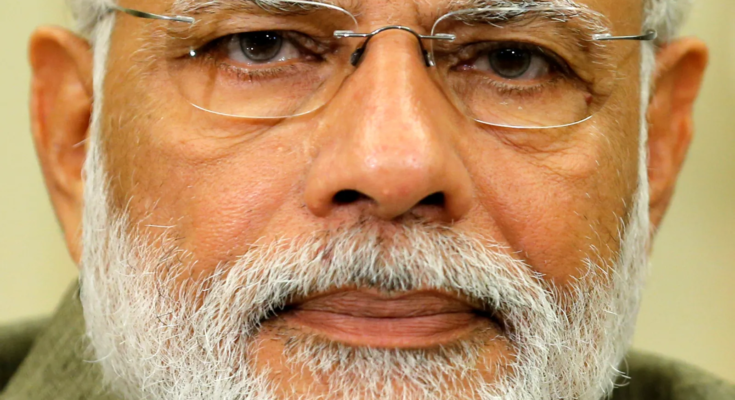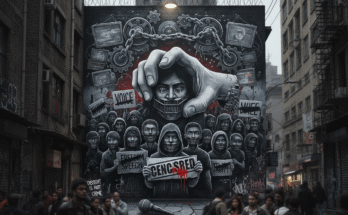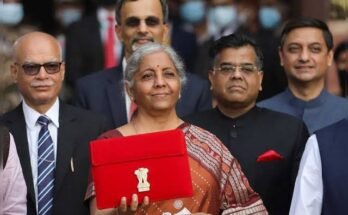“…we believe that individuals have the ability (and responsibility) to take purposive action to improve their well-being and to make the most of their life circumstances. What we learn, however, is that these individual stories and efforts play out within a sociocultural context in which privilege and disadvantage are not distributed equitably…”.
Psychology, Poverty and the end of Social Exclusion, Laura Smith
When we look at today’s India in the light of the above lines we can say that the Narendra Modi government has failed India on economic, cultural and socio-psychological fronts and it needs to change its course now.
Bad Economics
It is known to an average student of economics that while making a budget we need to consider that the resources are meager. Once considered as a basic premise, the next question is to allocate the resources. Being allocated, now comes the role of society in distributing the output of goods and services they produce. The feeling of scarcity gives a befitting satisfaction to the people that they cannot produce all the goods and services people wish to have- just like everyone cannot get everything one wants. This, therefore, gives birth to competition in allocation.
On the contrary, the Indian government thinks and propagates that resources are abundant in India. It has forgotten the basic principles of economics. So it bids on the development proceeds like those in an auction. This fallacy results in the wrong allocation of jobs and their doers. Influenced by the government’s propaganda, since people come to think that the resources are abundant they aspire to become the self-proclaimed savior of society. People’s minds are teamed with the fallacies that good days are about to come and because of that they need not earn much and make savings. Thus, their productivity translates into destructive action which diminishes the output thereby making the resources more scarce. The output of goods and services that society produces collectively gets fundamentally disturbed. Sectarianism, bigotry, and its horrible descendant fanaticism start to flourish that paved way for violence.
It does not stop here. It brings problems for economists too. They find it difficult to examine how the multitude of buyers and sellers of goods and services together determine the price at which the goods and services are sold and the quantity that is sold. They further find it difficult to analyze forces and trends that affect the economy as a whole, including the fraction of the population that cannot find work as well as the reason behind the rising prices as the economy is nothing but a group of people dealing with one another as they go about their lives.
In designing any policy, governments face the biggest trade-off between efficiency and equity. The government of India faces no difficulty in meeting these goals because people have already been intoxicated by the idea that welfare schemes, employment generation, insurance, etc. are the wasteful allocation of resources whereas giving advertisements in media in the garb of awareness campaigns is useful. On top of that, a strong pre-condition is established by the tamed media that the parliamentary opposition is anti-majority, hence anti-national. The outcome of this propaganda eventually creates frustration and arouses a strong motive to harm the ‘Other’.
Here comes the cost in the picture. The cost is the uneven distribution of disposable income amongst the citizens. Unemployment surges, and plunder of natural resources increases. People respond to incentives and in the absence of the same, frustration is built that leads to violence and thereby less time to work that may produce goods and services. Until the 1980s, the communists believed that it is government officials who were efficient enough to allocate the scarce resources of the economy to the citizens. They decided what goods and services were to be produced, how much, and who produces and consumes them. Isn’t it amazing! The same central planning is taking place in India at present where the government believes that it could organize economic activities as per its whims and fancies. Even those who pretend to be the advocate of a market economy believe in centralized planning as they never face hurdles in the acquisition of land and natural resources for peanuts by putting the government in the front. By doing this, they just tie the ‘invisible hand’ thereby making the prices determined by the central planner, as it happened in the communist regimes. The recent hike in repo rates by the RBI is one of the finest examples.
Further past, we see that with the usurpation of the US by Reagan the world collapsed into chaos. The explosive growth of megachurches, temples, mosques, etc. tried to rest on the government. A plural society that was recreated with the advancement of technology and information was destroyed by the same tools. The autonomous institutions now became the government institutions. The decisions were being taken centrally in favor of very few institutions, like those of Hitler in Germany and Stalin in the Soviet Union. What they did wonderfully was to bleed the agriculture sector. The famous supply-side economics failed the world leading citizens into jeopardy. Industry at the cost of society flourished only to the extent it could snatch money from the government under the disguise of subsidies, be it either interest or transportation. Ironically the same could have been passed on to the poor people but they were left hand to mouth on a meager income of 2 Dollars per day.
The question of ‘Culture’
Now we look at the socio-psychological picture that is deeper and more entrenched than economic variables. India has been a pluralist society since time immemorial, but now it is splintering into a myriad of sectarian entities. I find in India that when it comes to religious orthodoxy be it either Hindu or Mohammaden or others, people consider more information and arrive at more complex attributions when judging an event and they show less evidence of thinking based on the representativeness heuristic (a judgment simplification strategy). They easily get agitated even for a small cause which is very against pluralism as it assaults the common good. Social media, what psychologists call it, gives ‘information overload’ thereby depleting people’s processing capacity through high levels of stress.
Putting Adam Smith’s words as verbatim as those in The Wealth of Nations, “Every individual… neither intends to promote the public interest nor knows how much he is promoting it… He intends only his own gain, and he is in this, as in many other cases, led by an invisible hand to promote an end that was not part of his intention. Nor is it always the worse for society that it was no part of it. By pursuing his interest he frequently promotes that of the society more effectively than when he intends to promote it.” It must be noted that Adam Smith’s ‘invisible hand’ works only when men become self-centered. Being self-centered is not bad. Even when you fly high, the flight attendant instructs you to wear an oxygen mask first and then help others, even your infant. It is an adage that be perfect yourself then make others perfect.
Jawaharlal Nehru understood this. He had assured that all the communities be represented in the constituent assembly by the members of their choosing. Nehru always believed that the open, civilized and reformist political system we have today is premised on three principles: democracy, secularism, and pluralism. Constituent Assembly debates are an eye-opener in this regard. To quote from Grainville Austin’s book, an old story goes:
“In the summer of 1946, this group [The Socialist] decided not to join the Assembly on the basis of the Cabinet Mission Plan because its senior members believed that the British were again leading India up the garden path. Their decision kept nearly a half dozen able individuals out of the Assembly. A year later, Jayaprakash Narayan, leader of the group, reconsidered his view of the validity and effectiveness of the Assembly and wrote to Nehru that ‘in the changed circumstances’ Socialist members could join the Assembly if invited. He requested that he should not be included, because he was ‘too occupied’, and suggested that those who might be invited include Narendra, Mrs. Asaf Ali, Ram Manohar Lohia, Purushottam Trikamdas, Kamaladevi, Rad Patwardhan, and Ashoke Mehta. Nehru replied to this overture that ‘we shall welcome the persons you have suggested and we shall try to get them in’, but he explained that it was difficult to create vacancies because the election of members was largely a matter for the provinces and there was strong competition for seats. The affair ultimately came to naught. The absence of a formal Socialist group meant little, however, for most members of the Assembly thought of themselves as Socialists, and with few exceptions, the members believed that the best and perhaps the only way to the social and economic goals that India sought was by the road of government initiative and control of industry and commerce. Equally, the absence of representatives bearing the label of the Hindu Mahasabha, of the Rashtriya Swayamsevak Sangh (RSS), or of other Hindu communal groups, meant little. Their views on the institutional aspect of the constitution differed little from the Congress; their extreme communal views would not have swayed the Assembly. Besides, the Congress had its own Hindu conservatives- like Purushottam Das Tandon. And, indeed, members of the Hindu Mahasabha were present in the Assembly under other sponsorship. In all, three former Mahasabha presidents were members. two of them became so on Congress tickets: M. R. Jayakar, as we have seen, and Shyama Prasad Mookerjee, actually a vice-president of the Mahasabha when he entered the Assembly after Nehru made him a member of the Cabinet.”
We may forget; history can not. This story from constituent assembly debates is getting reflected nowadays in the Bharat Jodo Yatra of Rahul Gandhi which is representative of the basic traits of the Indian National Congress. I compare the action of Rahul Gandhi with that of Dante in writing De Monarchia where the Italian poet argued that the leaders must be secular. Rahul’s Bharat Jodo Yatra is one of the smallest steps towards the preparation of the common good, and I am sure that it will be able to create a community of civic responsibility as the same happened after Dandi March. It is a timely step before India turns into chaos. We must not forget that the Egyptian revolution witnessed at Tahrir Square splintered the whole world into religious organizations thereby making uniformity amongst the citizens absent which arose a congeries of autonomous religious institutions around the world.
What is to be done?
Clubbing both the psychologists and economists we could conclude that being pluralist is good for which we need the entire society at work and we could find that since 2011, youth has been put at risk. They are prone to create a nuisance from information overload which must be arrested at first by teaching the values and then by providing job security. The irony of the fact is that the government at the helm is more interested in supplying tropical ‘information overload’ than to provide value and job security. In this context, Bharat Jodo Yatra is a giant step in terms of recreating a Secular India that will give the citizens a willingness to accept that other castes, creeds, and religions have different values which must be respected and must learn the values by commitment, conviction, and dedication to the common good.
We, the people of India, need to imbibe Gita’s ‘तेऽपि मामेव’ (they are us too) completely by killing Kalnemi within me from the deep practice of good sense. In the long run, we would find that division shall turn into diversity, variety into plurality, and religion into value. The people of India shall have the affluence of food and wealth to sustain themselves. The concept of sustainable growth which has become alien in the minds of the Indians would become reality.
And what does the government of India need to do? The answer is very obvious- not to design the policy to reward the politically powerful! As Ramsay Muir, a British historian once said that the reign in Bengal between 1770 and 1774 was an era of the ‘government without responsibility’. History remains very unkind. That is why the Narendra Modi government should be alert that his ‘minimum government maximum governance’ does not get translated into ‘government without responsibility’. For this, it needs to check the market failure i.e. to intervene when the market on its own fails to produce an efficient allocation of resources for promoting healthy competition, to decrease frustration, and to punish the vile.
In the Sultanate era, the Sultan influenced his subjects so that the richest of the rich are just his servants and it is his right to have subjects loyal to him failing which they would be considered traitors. The Narendra Modi-led government may lose elections should they stop fuelling aggression and frustration amongst the citizens, but ultimately this posture will let anti-nationals enjoy his Sultanate, and later on the ‘invisible hand’ will be on the trigger. A vivid example of this is the slogan Goli Maro Salon Ko which created the ground for the Delhi riots in 2020.
The government of India must not forget that any policy which is framed and the decision has been taken must address the key question of how it will affect our ability to produce goods and services for which the workers should be well educated, have access to the best available technology and have the tools needed to produce goods and services; not the guns as the world witnessed on various occasions which include not limited to at the site of Shahin Bag, Delhi during anti-CAA/NRC protests. The political leaders of India desperately need to make citizens inclusive and pursue the common good.




